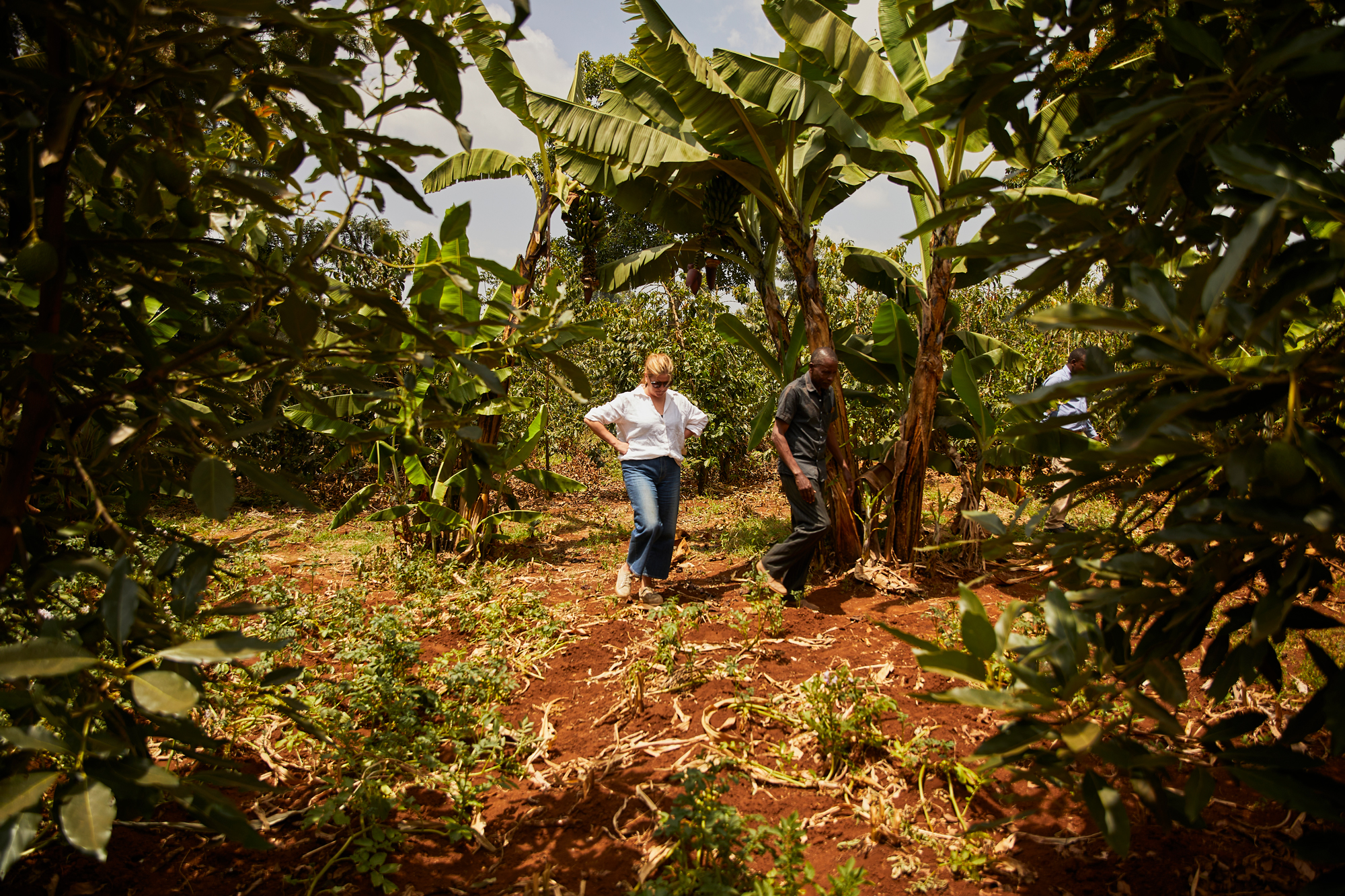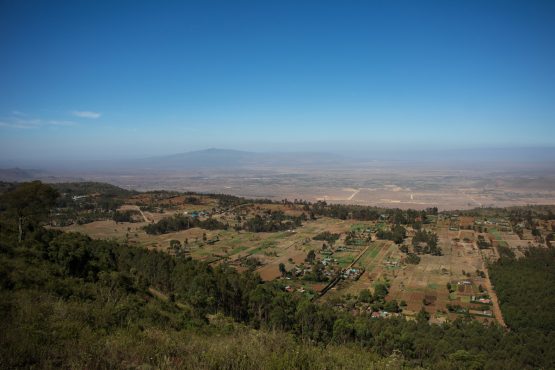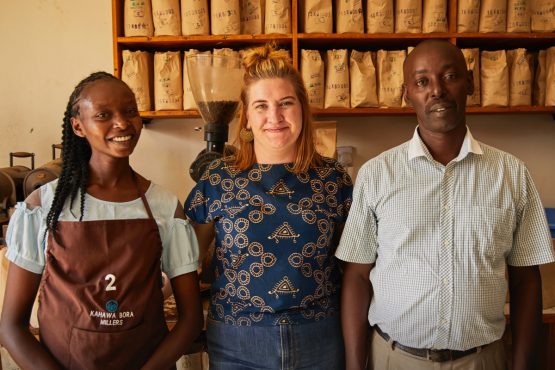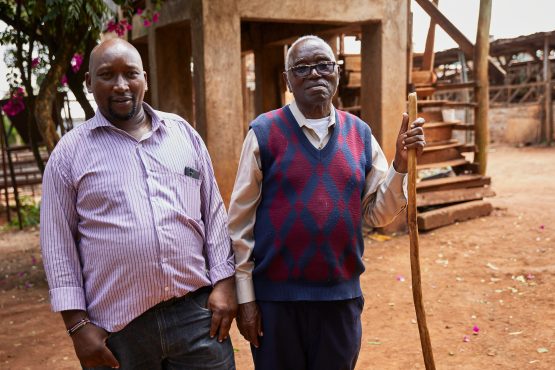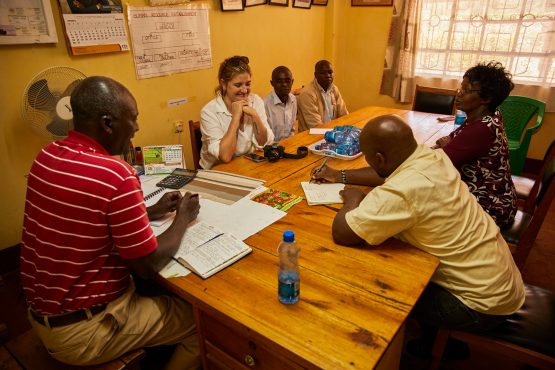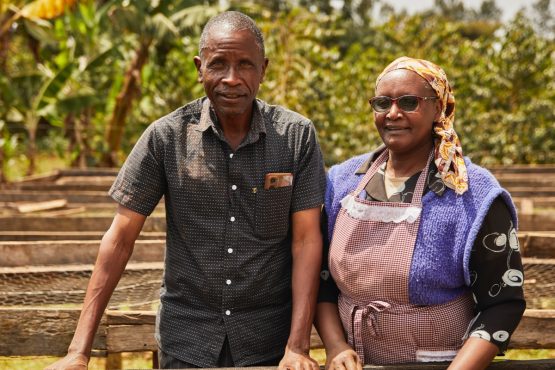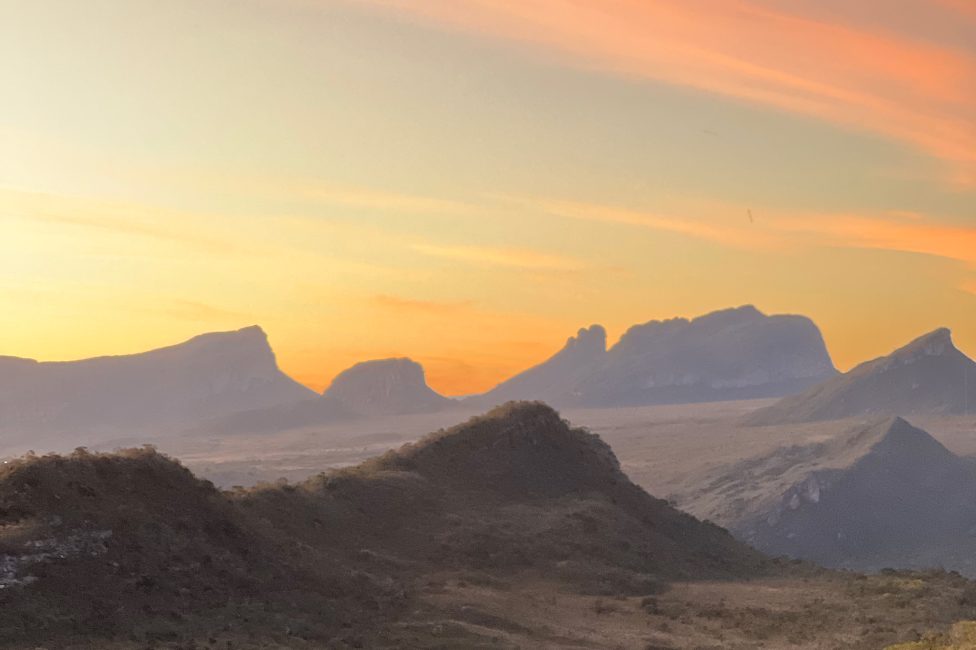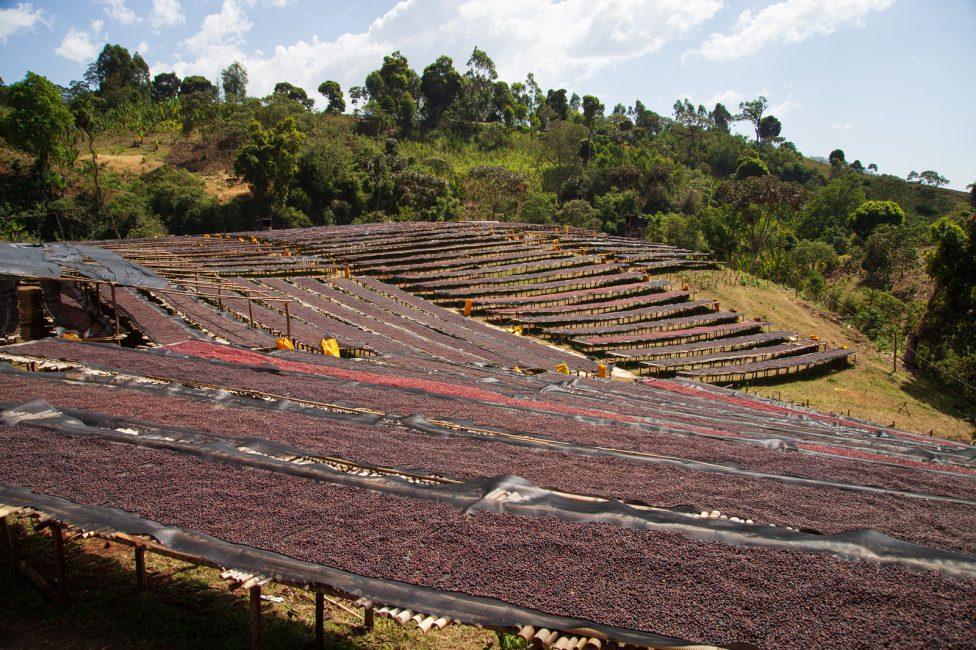Updates From The Road: Kenya 2023
Published 11 April 2023
After a successful and rewarding trip to Kenya earlier this year, we’re excited to share some of what we learned on the road, and more information on what to expect from this year’s crop!
In Kenya, we work closely with the trading company Kenyacof, whose team connects us to a network of quality-focused smallholder producers and cooperatives through their affiliated marketing agent, Sucastainability. Unique to Kenya, the marketing agent is contracted by the farmer or cooperative and is responsible for cataloguing and marketing coffee lots either directly or via the Auction system to traders like Kenyacof, who then sell the coffee to the final buyers. Agents like Sucastainability support their farmer customers by providing invaluable advice and resources to maximise the quality and yield (and therefore, price) of their coffee crops. They also arrange the milling and packaging of the coffee and provide important sensory analysis and quality assurance to potential buyers, like MCM.
Since we began working with Kenyacof in 2018, we have chosen to only buy coffees sourced via Sucastainability directly, rather than through the auction system. This decision allows us to pursue long-term, mutually beneficial relationships with several smallholder producers who process their coffee independently of the cooperative system, and a selection of cooperatives that employ great processing practices at their wet mills (called factories in Kenya) and prioritise transparency for their farmer members. The result is reliable quality year-on-year, great traceability and the ongoing development of trust and understanding between MCM and the producers. In this model, prices are negotiated with the producer or cooperative board, allowing the farmer greater leverage in determining a fair and prosperous price for their crops.
When we travel to Kenya, we go with a pretty good idea of who we will be visiting, and what coffees we’ll purchase. Our goal is to strengthen our existing relationships and ensure that our favourite lots are meeting our quality expectations on the cupping table. Our recent trip was our first since 2020 (when we snuck in just before the pandemic hit!) and, besides catching up with our friends and partners there, we were keen to learn more about how Kenyan coffee production has fared over the last three years.
We began our trip by cupping with Kenyacof’s team at their central offices and with the team at Sucastainability’s milling partner, Kahawa Bora. Cupping at the mill is always fun, as we get an overall impression of the season’s quality and gain important insights and understanding from Kahawa Bora’s expert QC team. This year’s harvest has been greatly affected by the country’s ongoing drought, which is considered its worst in four decades. Kenya hasn’t experienced a normal rainy season since 2019, and many of the rivers and tributaries farmers rely on for irrigation have completely dried up.
As a result, many of the single farms we have bought from previously have produced much lower volumes this year, and there are fewer AA lots available generally – without rain, cherries simply do not grow to larger sizes, and most of the 22/23 crop has been graded as ABs, or smaller PB and C lots. Typically, in a dry season, the scarcity of AA lots will drive up their price at auction, although we find there is less quality distinction between the AA and AB lots in the cup. Overall, we found this year’s quality to be on par with the 21/22 crop, with some excellent regional distinction and character in the lots we selected.
We spent the remainder of the trip traveling through the central regions of Kenya with Njoroge, one of Sucastainability’s lead agronomists. Njoroge is kind, funny, knowledgeable, and deeply connected to the producing communities, so being on the road with him is always a treat! Because most of the counties we buy from are in a relatively small region, located in and around the foothills of Mt Kenya, we were able to visit several farms and factories in just a few days – albeit very long ones!
In Nyeri, Murang’a and Embu counties, we spent time with our cooperative partners: Kiama FCS (who manage Kiangundo, Ichuga and Gachuiro factories); Kamachiria FCS (who manage Wahundura); and Ngandori FCS (who manage Mwiria). Meeting with the cooperative boards gives us an opportunity to learn more about the pricing and payment structure for their members, and to restate our commitment to paying good prices for quality coffees, year-on-year. We were also able to see first-hand several sustainability practices that the factories have developed in collaboration with Sucastainability, including worm composting projects at Mwiria, planting macadamia at the Kiama factories as an alternative source of income and more efficient irrigation and wastewater management across the region.
In Kiambu and Kirinyaga, we were delighted to reconnect with the small holder producers whose coffees we’ve now purchased for four years in a row, and who we last saw in 2020. It was a delight to visit Danson & Josephine of Dagitu Estate, Peter of Petit Estate and to finally meet Joseph & Pauline of Kabumbu Estate – a long-awaited event, given that we have enjoyed their coffee so much over the years. We also visited Rosemary of Waweru Estate, who is one of 30 independent growers who make up the Ngewa-Komothai Farmers Group, a collective of growers who blend their crop together to build lots large enough to meet the minimum quantities necessary to have them milled for export.
Time spent with these small, independent producers is incredibly meaningful and insightful, and reinforces our goal of developing strong, long-term relationships through open, honest communication and consistently paying great prices for quality and traceability. While the farmers were happy to receive us as guests, most shared the same concerns about water management during the drought. Without water to irrigate the farms they cannot produce adequate volumes, limiting their ability to make good money from their coffee crop and affecting their overall livelihood. Many were considering alternative options for irrigation, such as digging bore holes or pumping water from higher elevations up Mt. Kenya. However, these improvements come at financial cost, at a time when their revenue from coffee is decreasing.
These considerations strengthened our resolve to buy all three exportable grades (AA, AB, PB) from each of the smaller estates’ outturns (the unique tracking number assigned to each delivery of parchment to the mill). The result is a lot of small lots making up this year’s container – some as tiny as 30kg total! Due to lower yields, there is an overall decrease in the availability of small producer lots – to compensate, we’ve topped up the container with some exceptional cooperative lots from our favourite factories, including Kiangundo, Ichuga, Gachuiro, Mwiria and Wahundura, which are priced consistently with our 21/22 offerings. We’re currently in the final stages of confirming our offer list, which we’ll share with pre-shipment samples in May. The coffees are expected to land in July/August, and we can’t wait to share them with you!
Read more about our Kenyan sourcing here or get in touch anytime to plan your next Kenyan offerings.
